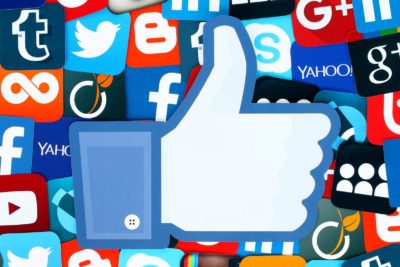Google, Facebook, and Twitter are monopolies. The executives running these companies see themselves as the arbiters of public discourse. Those executives use tools to suppress users and politicians they oppose. Those tools include shadowbanning, deplatforming, and demonetization. The tech companies believe social media played a pivotal role in Trump’s victory. They are moving aggressively to prevent a repeat of the 2016 election.
Voters get it…
Americans understand there is a problem. A majority of voters see Big Tech bias as a problem. That would include majorities of both registered Republicans and registered Democrats. The American people, their elected officials, and the enforcement agencies are waking up. The question is how to address the challenge of online censorship. We all know it runs contrary to the founding principles of our nation. This is not a partisan issue.
After the first Democratic debate the most searched candidate on Google was Rep. Tulsi Gabbard. A federal lawsuit filed by Gabbard’s campaign asserts campaign interference. Google immediately suspended her campaign ads. Their service controls more than one-third of all internet advertising. Then they started sending her promotional emails to Gmail spam folders.
Gabbard is accusing Google of denying her the “debate bump.” She feels they stepped in at the most critical moment of her campaign. Do Big Tech companies just want to direct political philosophy? Are they content with controlling which party wins presidential elections? Do they want to determine which candidates the parties nominate? Do you know what Tammany Hall was?
Anti-Trust…
Google and Facebook are going to face the antitrust scrutiny. They are corporations that control huge market share. Google control a 90% market share in online search. Facebook controls a 73% market share of social media. The DoJ, the FTC, and the House Judiciary Committee have open probes. Those probes came based on concerns raised under the Obama administration.
On Tuesday, however, Big Tech’s antitrust problem got a lot bigger. The head of the DoJ’s Antitrust Division, confirmed there will be a much broader probe. It will include not just Google and Facebook, but also Amazon and Apple. The probe could lead to some of the tech giants being broken up.
Other considerations and actions…
A review of antitrust activity is inseparable from free speech issues. One of the greatest problems with monopolies is their “tendency to interfere with and to dominate politics. Ordinary Americans can’t just sit back and wait for regulators to solve the problem.
New legislation may be considered. It should complement grassroots efforts to combat tech censorship. Should we require Big Tech to reflect the norms of political neutrality? Does Big Tech respect the First Amendment principles in their policies? Should they continue receiving special treatment under Section 230 of the Communications Decency Act? This rule grants them extraordinary legal protections that have been expanded by the courts.
Silicon Valley is taking notice. They are threatened. To combat the threat Big Tech has assembled one of the most formidable lobbyist armies ever assembled. Their efforts smell of desperation. It is an effort to squelch these threats. They’re also funding think-tanks and front groups.
The goal is to appeal to conservatives and libertarians by painting the tech companies as plucky defenders of the free market. That worked when few knew of or used the internet. Now, many, if not most people, see Big Tech as the abusive monopolies they have become.
Conclusion:
No amount of lobbying and disinformation will bury the truth. The Big Tech monopolies are increasingly pushing agendas at odds with the fundamental American freedoms. Americans cherish liberty. Big Tech has begun to fight a war of attrition. Its goal is to control our ability to speak, think and vote freely. That is what hangs in the balance.
